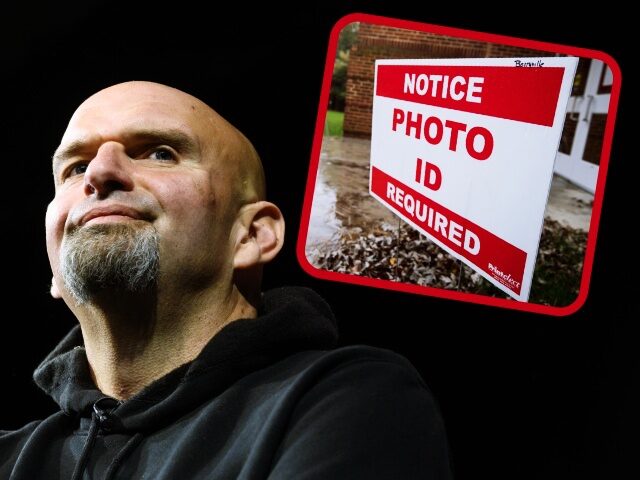Remarks made by Pennsylvania Lt. Gov. John Fetterman (D), running against Republican Mehmet Oz for the state’s open United States Senate seat, suggest voter ID laws suppress voter turnout among black Americans. Such claims are not supported by evidence, years of analysis show.
“In my own state, they are going to pass … a constitutional amendment making sure that universal voting ID,” Fetterman said this week:
… they understand at any given time that there are tens of thousands of Pennsylvanians … typically on the poorer side and are people of color that are less likely to have their ID at any one given time. [Emphasis added]
The suggestion that voter ID laws, where registered voters must show a state-issued identification to poll workers before they cast a ballot, suppress turnout among black Americans has been debunked by years of research.
In 2017, for instance, the New York Times analyzed turnout among black Americans in Alabama in the state’s highly-contested Senate race between Democrat Doug Jones and Republican Roy More.
The Times found that despite the state’s voter ID laws, implemented in 2014, black Americans actually turned out at a higher rate than white Americans to push Jones over the edge:
Still unclear is what role voting restrictions, including voter ID, are playing on turnout here and elsewhere. Exit polls are preliminary, but the ones available in Alabama suggest the share of blacks who cast ballots — roughly 41 percent of the African-Americans voters — exceeding the 35 or so percent of whites who turned out. The divide likely reflects a robust black turnout and modest participation from whites who were unenthusiastic about Mr. Moore, whose already-controversial candidacy was dogged by accusations of sexual misconduct. [Emphasis added]
A report by Courthouse News noted how, despite claims that Alabama’s voter ID laws would suppress turnout among black Americans, the opposite occurred on election day:
Jones was carried to victory by black voters who turned up on the clear December day in numbers higher than expected. According to exit polling conducted by CNN, black voters overwhelmingly supported Jones, with 98 percent of black women voting for him. [Emphasis added]
Twenty-nine percent of voters in the Alabama special election were black, according to CNN, at a time when they make up about 26 percent of Alabama’s population. While one in four people in Alabama are black, one out of every three voters in line Tuesday deciding the race between Moore and Jones was African-American. [Emphasis added]
In 2019, the left-wing media outlet Vox reported on academic research showing that voter ID laws in 10 states did not suppress turnout among black Americans.
“The study, from Enrico Cantoni at the University of Bologna and Vincent Pons at Harvard Business School, found that voter ID laws don’t decrease voter turnout, including that of minority voters,” Vox reported:
The researchers then looked at how the voter ID laws affected turnout and compared trends to states without voter ID laws from 2008 to 2016.
[Emphasis added]The results: Voter ID laws do not seem to decrease turnout, even when the data is broken down by race. This held when the data was analyzed in different ways, like evaluating only the effect of stricter laws that require an ID with a photo. [Emphasis added]
Fetterman’s opposition to voter ID laws is woefully out of tune with most Pennsylvania voters. A poll from June found that 64 percent of voters in the state support requiring registrants to show proof of ID at polling sites before voting.
John Binder is a reporter for Breitbart News. Email him at jbinder@breitbart.com. Follow him on Twitter here.

COMMENTS
Please let us know if you're having issues with commenting.